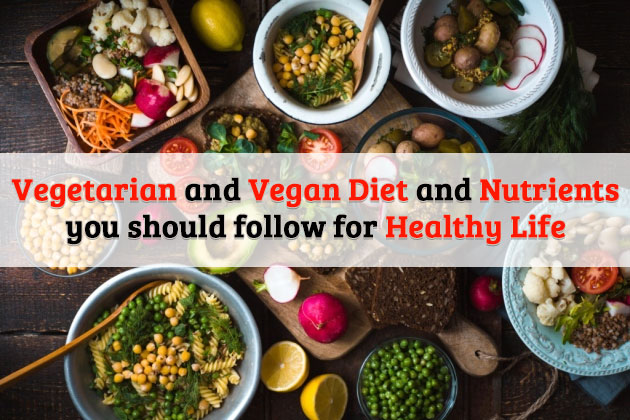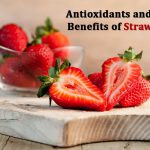To ensure that you get everything your body needs, there are some nutrients that you should pay special attention to if you have a vegetarian diet, and especially if you have a vegan diet. This is especially important for pregnant, breastfeeding, and young children.
Regardless of what kind of diet you choose, it is an advantage to know a little about nutrition and understand how you can, in the right way, put together a balanced and varied diet with the important nutrients. Some nutrients may need to be taken in the form of supplements.
For vegans, this mainly applies to vitamin B12, iodine, and vitamin D. All women in Norway who are pregnant or thinking of becoming pregnant are advised to take folate supplements (before pregnancy and in the first three months). Pregnant and breastfeeding women can cover the omega-3 fatty acid DHA’s recommended intake by using a supplement with algae oil (vegetable omega-3).
Below is a recommended intake of some vitamins and minerals. The recommendations apply to everyone, whether you have a vegetarian diet or not.
Iodine
Iodine function in the body
Iodine is an essential part of the metabolic hormone thyroxine, which helps regulate the body’s energy metabolism.
Where do we get iodine from?
Iodine is found in foods from the sea, milk, and eggs (because animal feed is added to iodine) and salt-added iodine. The salt content is very low. Flour of seaweed, kelp, and algae from the sea contains a lot of iodine. The content of seaweed and kelp flour varies greatly, and some have so much iodine that a high intake should be avoided. Read more on Matportalen.no: Is it safe to eat seaweed and kelp?
Recommended daily intake of iodine
- Adults: 150 micrograms (µg)
- Children 1-2 years: 70 micrograms (µg)
- Children 2-5 years: 90 micrograms (µg)
- Children 6-9 years: 120 micrograms (µg)
- Children from 10 years of age: 150 micrograms (µg)
- Pregnant women: 175 micrograms (µg)
- Breast-feeding: 200 micrograms (µg)
How to get enough iodine?
Cow’s milk contains 150 micrograms of iodine per liter, and if you have an intake of more than one liter of cow’s milk/yogurt per day, you do not need to take supplements. There is little iodine in yellow cheese, but brown cheese contains 200 micrograms per 100 grams of cheese.
Without supplements, vegan diet foods with added iodine or sea plants will quickly have a low content of iodine. Some plant drinks/dairy substitutes have added iodine, but this varies, so read the content declaration. A knife-edged kelp meal is sufficient to cover the daily requirement, but because the iodine content can be very high in some seaweed and kelp products, it is safer to take iodine in the form of supplements. Most sea salt types do not contain iodine, but neither does salt added iodine, purchased in Norway, contain enough to cover the need. The Veg 1 supplement, which is produced for Vegan Society UK, can be purchased online. Veg 1 includes 150 micrograms of iodine per tablet get Fildena 100 at Himsedpills.
Omega 3 fatty acids
The function of omega-3 fatty acids in the body
The long, polyunsaturated omega-3 fatty acids EPA and DHA have many essential roles in the body, including as constituents of cell membranes. DHA is of particular importance for developing vision, brain, and nervous system in fetuses and infants. EPA is likely to have a positive effect on cardiovascular health in adults.
Where do we get omega-3 fatty acids from?
The fatty acids EPA and DHA are naturally found only in algae and algae oil – in addition to fish and cod liver oil. The plant-based shorter omega-3 fatty acid alpha-linolenic acid (ALA) can be converted to the long, polyunsaturated omega-3 fatty acids in the body. The extent to which this transformation occurs varies from person to person.
Good sources of alpha-linolenic acid are flaxseed/flaxseed oil, walnuts/walnut oil, soybean/soybean oil, rapeseed oil, hemp seed oil, and pumpkin seeds also useful for mens health or get Vigora.
Recommended daily intake of omega-3 fatty acids
DHA
- Pregnant women: 200 milligrams (mg)
- Breast-feeding: 200 milligrams (mg)
- Children 0-24 months: 100 milligrams (mg)
How to meet the need for omega-3 fatty acids?
Supplements of the fatty acids EPA and DHA can be taken in the form of algae oil or algae supplements. This is equivalent to taking cod liver oil. Good sources of alpha-linolenic acid, nuts, seeds, and oils, should be included in the daily diet (see “where do we get omega-3 fatty acids from”).
Protein
Protein function in the body
Protein is the building block of muscles and participates in several processes in the body. Protein can also be utilized as an energy specialist, and this happens if the body does not get enough energy from the other energy sources, carbohydrate and fat. Proteins contain 20 different amino acids. Some of them can be made by the body itself, while others must be supplied with the food we eat. These are called essential amino acids.
Where do we get protein from?
Good protein sources in vegetarian diets are beans, lentils, peas, soy products, grains and whole grains, nuts, and seeds. Other plant foods also contain protein but in smaller amounts. All essential amino acids are found in vegetable foods. Different foods will contribute different amino acids in a varied vegetarian diet so that the protein quality is good.
Recommended protein intake
Protein should make up 10-20% of energy intake (calorie intake) from the age of two. From the age of 65, protein should make up 15-20% of energy intake. A rule of thumb can be one gram of protein per kilogram of body weight per day, i.e., 70 grams if you weigh 70 kilograms. Children who have a vegan diet have a slightly higher protein requirement (about 2-14 grams extra per day).
How to meet the need for protein?
Both vegetarian and vegan diets quickly cover the protein requirement as long as the diet contains enough energy (calories) and good sources of protein. Athletes and those who train strength can also cover a higher protein requirement with a vegetarian diet. Children need to have enough protein, since proteins are “building blocks” in the body, and children should grow. Children also quickly get enough protein from a varied plant-based diet that provides enough energy.




